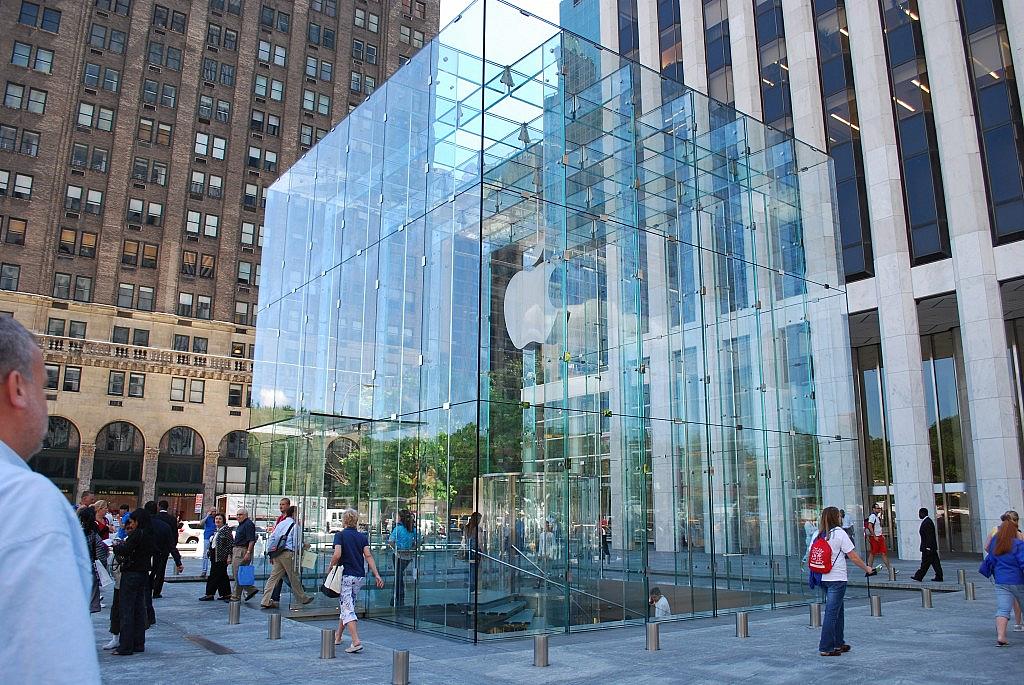Church hospitality teams can learn a lot about the care and feeding of the church visitor from Apple, one of the most profitable retailers ever. Apple’s success isn’t due to iPads and operating systems; it’s about how they train their employees.

Carmine Gallo, in his book The Apple Experience: Secrets to Building Insanely Great Customer Loyalty![]() , explains how Apple attracts more than 20,000 visitors per week per store and averages more than $5,600 per square foot by recruiting, motivating and deploying employees who are passionate about people.
, explains how Apple attracts more than 20,000 visitors per week per store and averages more than $5,600 per square foot by recruiting, motivating and deploying employees who are passionate about people.
The Apple Store experience began when Steve Jobs decided to enter the retail business. He hired a former Target executive and challenged him with a question: who offers the best customer service experience in the world? The answer wasn’t a computer retailer or any other retailer. It was the Four Seasons hotel chain. From exploring the Four Seasons success story Steve Jobs settled on one goal for his Apple Stores: enrich lives. As he develops the story of Apple’s retail success, Carmine points to seventeen core practices at the heart of their runaway retail powerhouse.
8 things
I’ve culled through the list – with hat tip to Guy Kawasaki – and offer up 8 things Apple can teach your church about hospitality.
- Don’t sell the church. Steve Jobs did not ask, “How will we grow our market share from 5 to 10 percent?” No; instead he asked, “How do we enrich people’s lives?” Pause here for a moment. Is your church hospitality program geared toward selling the church or settling in there? Or is your hospitality ministry driven by the quest to enrich the church visitor’s experience?
- Enrich visitors’ lives from day one. Apple Store employees carry a credo card; the first two words on that card are “enrich lives.” The pursuit of this core value led Apple to have a non-commissioned sales floor. Employees are free to spend as much time with a customer as the needs. It led to play areas for children where they could play on computers. It led to the “Genius Bar” where trained experts work on “rebuilding relationships” as much as fixing problems. Does your church hospitality program empower volunteers to go the extra mile for church visitors? How does your hospitality program create a calming environment where visitors can ask their questions and find answers.
- Staff with grinning greeters. Apple Stores hire, train, motivate and expect employees to create magical and memorable moments for their customers. Magnetic personality is more important than technical proficiency. They care less about what employees know than about how much they love people. Does your hospitality ministry include a preferred personality profile for team members or are you willing to settle with anyone that can fog a mirror on a cold day?
- Commission greeters who look like visitors. In an Apple Store you will see mohawks, tattoos, piercings – on the employees! Apple hires those who reflect the diversity of their client base. They are interested in passion, not fashion. Apple doesn’t look for someone who fits a mold. What does the demographic profile of your hospitality team portray – the kind of people you want in your church or the kind of people who will likely show up? This is a difficult missional question for some churches – how will you handle diversity on the hospitality squad?
- Let visitors explore at leisure. The Apple Store offers a unique program to help people understand and enjoy their computers: One to One. The $99 one-year membership program is available with the purchase of a Mac. Apple Store instructors offer personal instruction in the Apple Store. Customers are taught anything and everything, from the basic operation of a Mac to movie production and everything in between. The idea is to create customers for life around the idea that the more you understand their offerings the more you’ll enjoy it. What does your hospitality system offer to help people learn about how life with God operates in your environment? What steps can your hospitality program take to offer up front help that proceeds at the customer’s pace?
- Turn greeters loose. Employees are free to spend hours with a customer. The non-commissioned sales floor serves an important purpose: there is no pressure to close a sale or meet a quota. They are empowered to do the right thing. Does your hospitality training program teach a few rote behaviors and words? Or are your greeters made capable of dealing with any hospitality situation that may possibly arise?
- Show benefits, not features. Apple Store employees are taught to sell the benefit, not the features. Rather than touting technical specs they help customers experience the ways that their products will benefit their lives. Is your hospitality system geared toward technical specs (a slate of program offerings, schedules and events) or does it major on helping church visitors understand how their spiritual lives will be richer for participating in your church?
- Service, service, service. Apple insists its store employees observe the Apple five steps of service: Approach with a customized, warm greeting. Probe politely to understand the customer’s needs. Present a solution the customer can take home today. Listen for and address unresolved questions. End with a fond farewell and an invitation to return.
- Train, train, train. Apple products play only a small part in the retail success. If their employees had not been trained, personable and passionate about the brand the Apple quality experience would never have happened. Are your hospitality team members actively engaged in the process? Are they passionate about delivering the very best visitor experience possible? Do you train them to be attentive listeners, proactive agents and compassionate friends?



